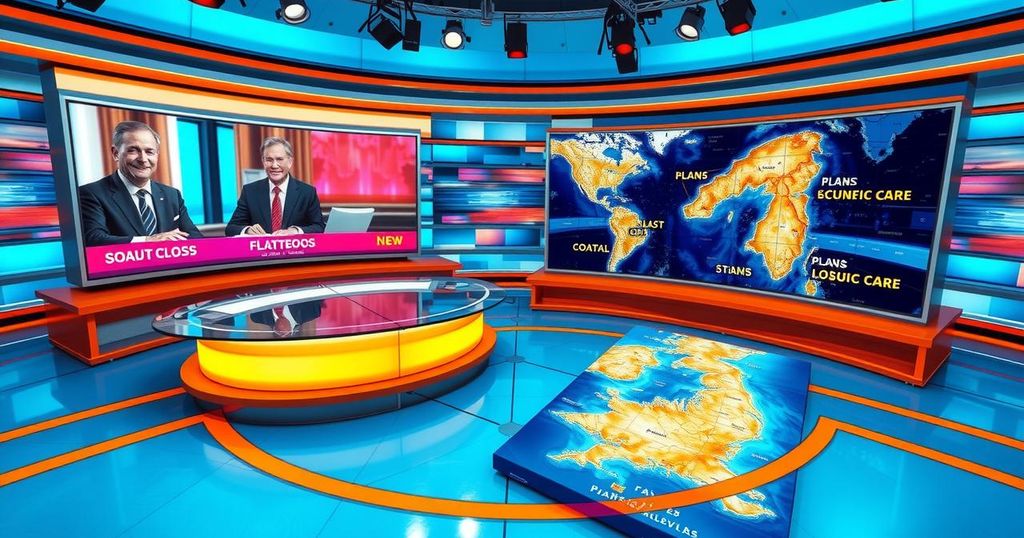Recent U.S. diplomatic actions led by former President Trump, particularly involving Ukraine and Gaza, have sparked alarm and criticism from Chinese media. This coverage emphasizes shifting power dynamics, the need for continued dialogue, and China’s position as a supporter of Palestinian rights, while contrasting U.S. approaches to foreign policy. Such incidents reflect broader concerns about the stability of the international order amid evolving geopolitical relationships.
Recent actions by former President Donald Trump have drawn significant scrutiny from Chinese media, particularly his interactions with Ukrainian President Volodymyr Zelenskyy and his proposed development plan for Gaza. Both incidents have caused alarm among international observers and have been interpreted as shifts in U.S. foreign policy, which China scrutinizes closely amid its own growing global influence.
The confrontation between Trump and Zelenskyy on February 28 raised concerns about the weakening of U.S.-led global alliances. Reports in Chinese state media emphasized the dangers of over-reliance on American support and noted that the incident reflected deeper geopolitical realities. A March 1 article in People’s Daily highlighted the need for diplomacy and dialogue among all international actors, indicating China’s desire to play a larger role in resolving global issues.
Chinese media characterized the Oval Office encounter as a disturbing spectacle rather than a sincere negotiation, warning it could indicate the end of U.S. security guarantees to Europe. Articles in Global Times discussed this aspect, framing U.S. policy as moving towards transactional rather than cooperative relationships, suggesting that China’s multipolar approach may offer a more stable alternative moving forward.
Following Trump’s announcement on February 4 regarding Gaza, Chinese commentary largely reiterated China’s established positions advocating for Palestinian rights. Foreign Minister Wang Yi stressed that Gaza is part of Palestinian territory and should be governed by its people. Chinese reports reflected on the U.S. plan, warning that it contradicted international law and received criticism from various media outlets, including the BBC and CNN, reinforcing China’s stance against the displacement of Gazans.
The Chinese response highlights a strategic approach towards diplomacy, seeking to position itself as a more rational actor on the global stage, especially in contrast to perceived unpredictability in U.S. foreign policy under Trump’s administration. This scenario presents an opportunity for China to reinforce its narrative of support for global stability amidst shifting power dynamics.
In conclusion, recent U.S. diplomatic encounters under former President Donald Trump have provoked considerable discussion within Chinese media, reflecting concerns over the fragility of U.S. alliances and the implications for global governance. China’s responses have emphasized its support for diplomatic solutions and a multipolar world, particularly in the context of Ukraine and Gaza, while positioning itself as a champion of international law and Palestinian rights. This unfolding narrative indicates a deliberate effort by China to assert its influence amid changing geopolitical landscapes.
Original Source: indianexpress.com




